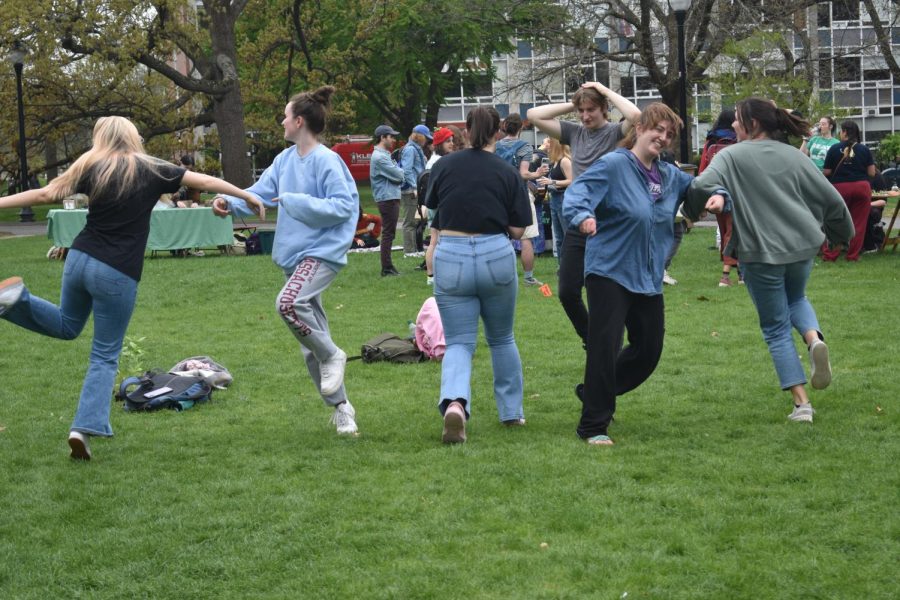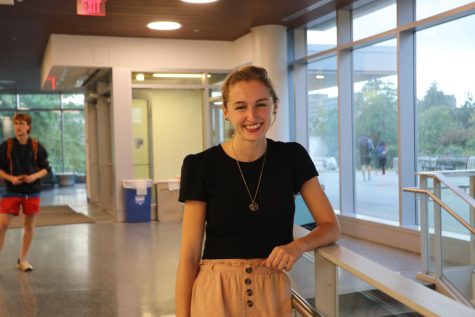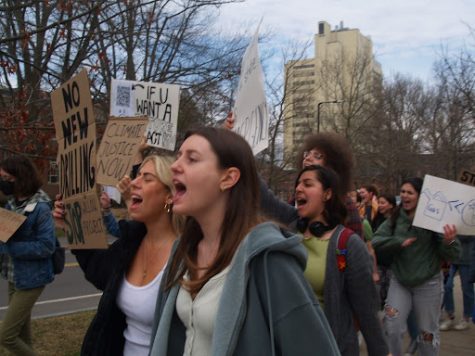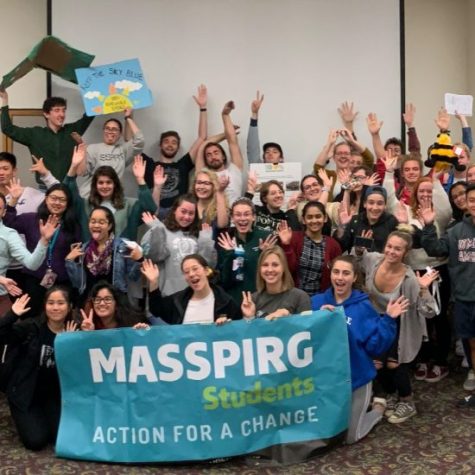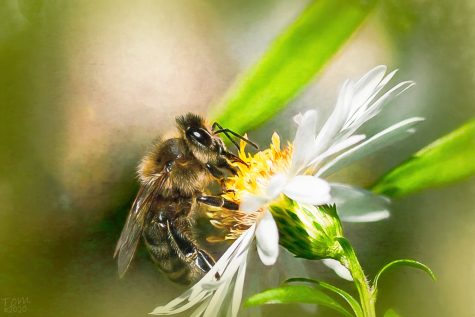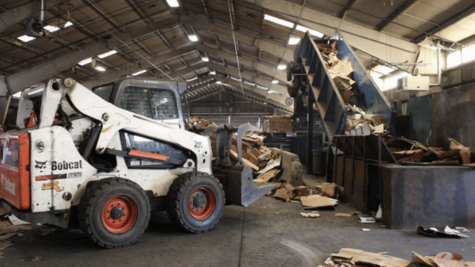UMass Student Farmer’s Market Emphasizes Community and Sustainability
Editor’s note: Maddie Fabian, co-writer of this piece, is a vendor at the Student Farmer’s Market.
The UMass Student Farmers’ Market, a collaboration between the Permaculture Initiative and the UMass Student Farm, fosters weekly community connections over farm-fresh food, handmade crafts and secondhand clothing.
Each Friday from noon-4 p.m on Goodell Lawn, the market bustles with student farmers, permaculture gardens, student vendors, and shoppers engaging in sustainable practices.
“Buying sustainable foods is better for not only myself, but better for the environment at large,” said senior public health major Lauren Pichette, who bought cucumbers. “If our society doesn’t start buying sustainable foods we’re going to end up eating crickets.”
Jo Fuchs, a senior at UMass and member of the Permaculture Initiative, said her drive to join the group was driven by her desire to see more beautiful landscapes flourishing with food.
“Our gardens are kind of an example of the permaculture practices, principles and ethics,” she said. “It’s brought together primarily by the community.”
Permaculture is an approach to gardening and landscaping that uses naturally-occurring relationships in nature to foster the health of the land and create natural barriers against pests and weeds without the use of unnatural substances or practices. The idea is to work with the land, rather than against it.
There are four permaculture gardens across campus, and ultimately the gardeners turn their harvests into herbal teas, jams and medicinal creams to sell at the market. The permaculture team also sells an array of oftentimes-unique produce like green Luobo radishes and Milpero tomatillos.
Over at the UMass Student Farm booth, a colorful assortment of fresh vegetables –ranging from green peppers to multicolored carrots to purple cauliflower– and flower bouquets are available for purchase.
Student farmers are constantly experimenting with new sustainable practices to produce organically-grown food to sell at the market. For instance, student farmer Abby Fredsall, a sustainable food and farming major, said, “At the Student Farm, we implement cover cropping into our field rotation to allow the field to rest.”
While most crops are grown for harvesting, cover crops are grown to enrich the soil with nutrients. Fredsall explained that the Student Farm often uses legumes as cover crops because they return nitrogen to the soil, which is important for crops like tomatoes, peppers and eggplant.
Community-building is at the heart of the market’s sustainable goals.
“Feeling part of something bigger, feeling part of a community, feeling like you’re held by people, that you’re seen by people… That’s all part of mental well-being,” said Dan Bensonoff, the sustainability coordinator of Campus Gardens. “All this stuff is really interconnected… If you’re not mentally balanced, you’re gonna make bad decisions for yourself and for the planet.”
Beyond food items, the farmer’s market also offers other sustainable alternatives to mass-produced items.
Jessie Harrington, a Hospitality and Tourism Management major, runs a small business selling secondhand clothing and sewing items from her own closet.
“I think it’s really important to make sure that you’re kind of giving back and getting stuff back out there,” she said.
Several other student vendors create handmade jewelry, crocheted clothing, or other handmade items like candles and paintings.
“As we’re thinking about changing consumerist tendencies in our culture, I think we need to sort of push back as much as we can, in our very little limited way, against the globalized economy that the world has become,” said Bensonoff.

